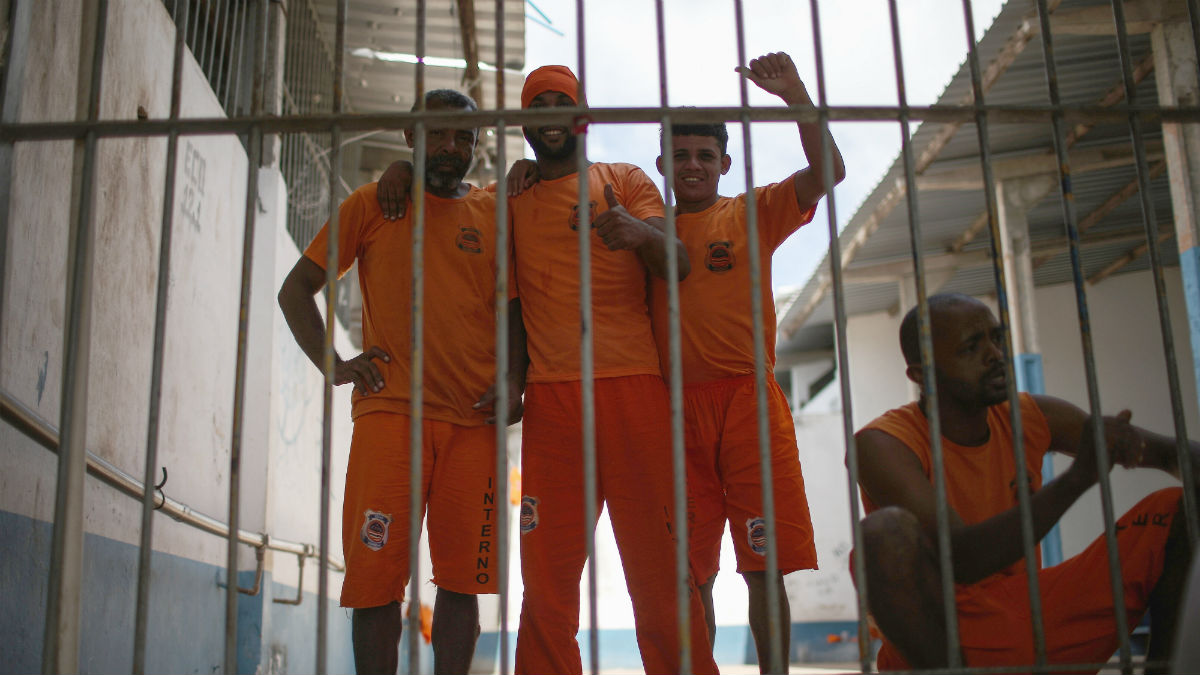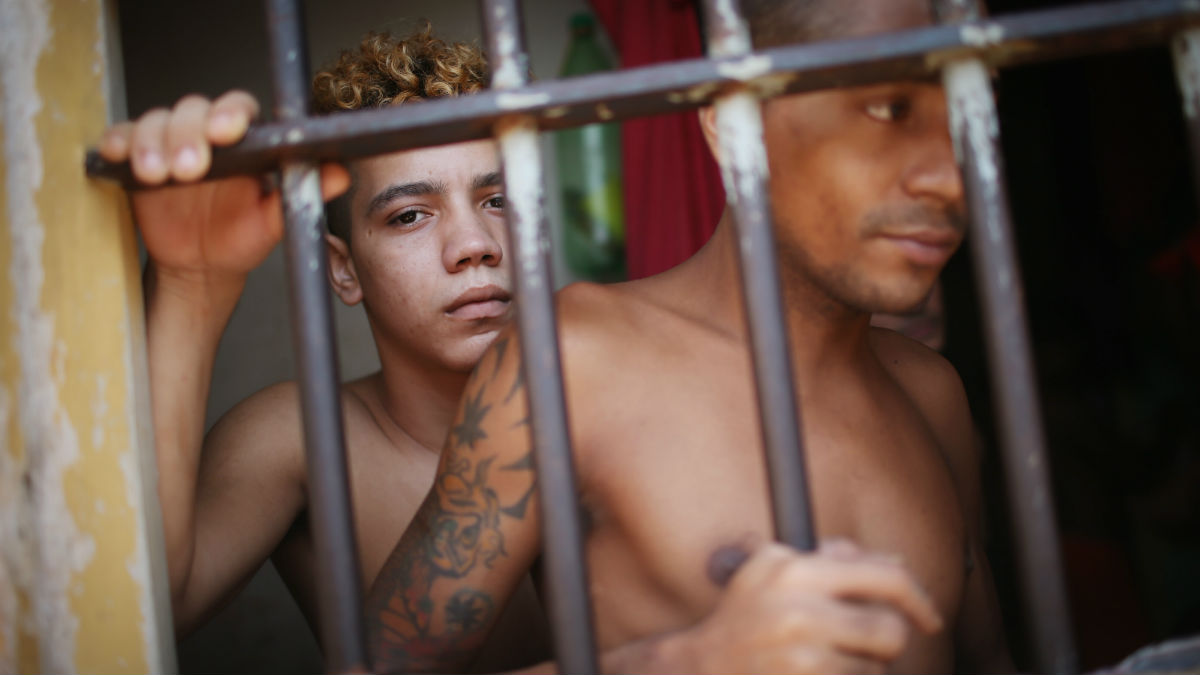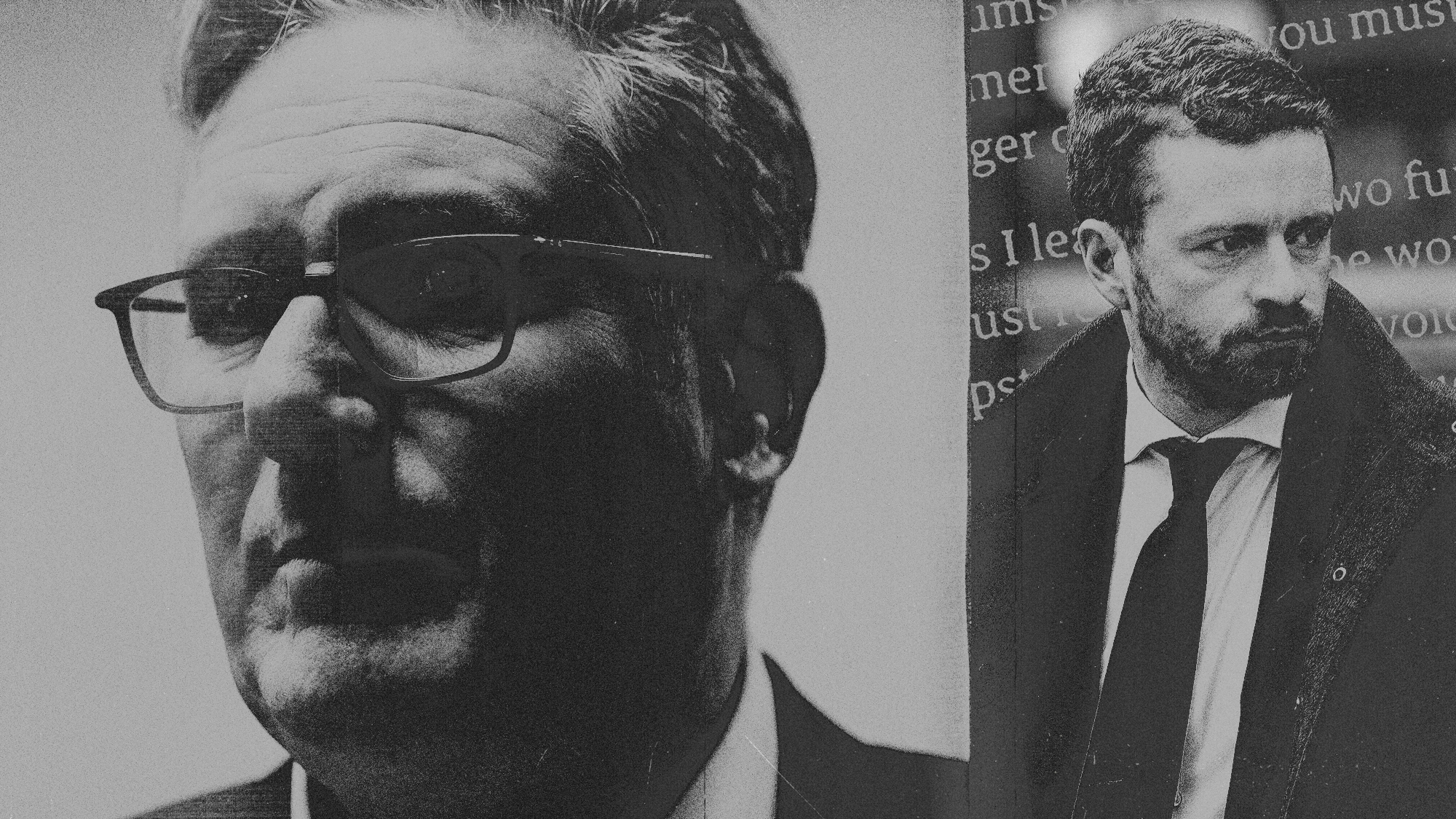Brazilian prisons in crisis as inmate numbers swell by a third
Humanitarian watchdog exposes multiple violations including inmates being deployed as guards.

A free daily email with the biggest news stories of the day – and the best features from TheWeek.com
You are now subscribed
Your newsletter sign-up was successful
Brazilian prisons are facing a "crisis" as a government crackdown on crime has sent prison numbers soaring by 33 per cent since 2008.
New laws to reduce the age of criminal responsibility in Brazil have heaped even greater pressure on the country's already creaking penitentiary system, according to human rights groups. Proposed legislation to reduce the age of criminal responsibility even further is an "atomic bomb" that is only adding to the problem.
What is going on in Brazilian prisons?
The Week
Escape your echo chamber. Get the facts behind the news, plus analysis from multiple perspectives.

Sign up for The Week's Free Newsletters
From our morning news briefing to a weekly Good News Newsletter, get the best of The Week delivered directly to your inbox.
From our morning news briefing to a weekly Good News Newsletter, get the best of The Week delivered directly to your inbox.
Brazilian prisons are dangerously overcrowded. In June this year, The Guardian reported that the country's inmate population was more than 220,000 over total capacity; Human Rights Watch has estimated that there are around 607,000 people currently behind bars.
How long has the situation been like this?
By all accounts, the overcrowding crisis has been getting worse for a while. The last decade has seen the population of Brazilian prisons more than double. Brazil lays claim to the world's fourth-largest prison population but, while the number of inmates in the US, China and Russia has declined, Brazil's has grown by 33 per cent over the past six years.

Is it going to get worse, or better?
A free daily email with the biggest news stories of the day – and the best features from TheWeek.com
In all likelihood, the situation will get worse before any substantial improvements are seen, critics say. In July this year, Brazil's lower congressional house voted to reduce the age of criminal responsibility for crimes including murder and rape from 18 to 16, The Guardian reports.
High-profile murders and gang rapes committed by youths have led to a swell in support for lowering the age, with one poll suggesting that 87 per cent of adults approve of the reduction. Critics of the change describe it as an "atomic bomb" for the prison system.
Brazilian justice minister Jose Eduardo Cardozo says that lowering the age of criminal responsibility would add another 40,000 prisoners to the criminal justice system.
What do supporters of the bill say?
Some of the comments have been quite extreme. Laerte Bessa, the bill's sponsor, says that in time, Brazil will lower the age of criminal responsibility to as low as 12, before adding that in future foetuses will undergo assessments in order to determine their potential for criminality.
"One day, we will get to a stage in which we are able to determine whether a child in the womb has criminal tendencies and if it does the mother won't be allowed to give birth," Bessa said.
What are human rights groups saying?
The humanitarian watchdog Human Rights Watch (HRW), has condemned the country's prison system, saying it operates outside of regional and international minimum standards. In its report on prisons in the Brazilian state of Pernambuco, HRW notes that inmates are asked to carry out guard duties.
Maria Laura Canineu, HRW's director in Brazil, said, "[Pernambuco] state has packed tens of thousands of people into cellblocks designed for a third as many people, and turned over the keys to inmates who use violence and intimidation to run the prison grounds as personal fiefdoms."
In analysing Brazil's prisons, HRW says that the current inmate population of 607,000 has been squeezed into facilities designed to cater for just 377,000.
-
 Political cartoons for February 9
Political cartoons for February 9Cartoons Monday's political cartoons include 100% of the 1%, vanishing jobs, and Trump in the Twilight Zone
-
 Who is Starmer without McSweeney?
Who is Starmer without McSweeney?Today’s Big Question Now he has lost his ‘punch bag’ for Labour’s recent failings, the prime minister is in ‘full-blown survival mode’
-
 Hotel Sacher Wien: Vienna’s grandest hotel is fit for royalty
Hotel Sacher Wien: Vienna’s grandest hotel is fit for royaltyThe Week Recommends The five-star birthplace of the famous Sachertorte chocolate cake is celebrating its 150th anniversary
-
 Epstein files topple law CEO, roil UK government
Epstein files topple law CEO, roil UK governmentSpeed Read Peter Mandelson, Britain’s former ambassador to the US, is caught up in the scandal
-
 Iran and US prepare to meet after skirmishes
Iran and US prepare to meet after skirmishesSpeed Read The incident comes amid heightened tensions in the Middle East
-
 Israel retrieves final hostage’s body from Gaza
Israel retrieves final hostage’s body from GazaSpeed Read The 24-year-old police officer was killed during the initial Hamas attack
-
 China’s Xi targets top general in growing purge
China’s Xi targets top general in growing purgeSpeed Read Zhang Youxia is being investigated over ‘grave violations’ of the law
-
 Panama and Canada are negotiating over a crucial copper mine
Panama and Canada are negotiating over a crucial copper mineIn the Spotlight Panama is set to make a final decision on the mine this summer
-
 Why Greenland’s natural resources are nearly impossible to mine
Why Greenland’s natural resources are nearly impossible to mineThe Explainer The country’s natural landscape makes the task extremely difficult
-
 Iran cuts internet as protests escalate
Iran cuts internet as protests escalateSpeed Reada Government buildings across the country have been set on fire
-
 US nabs ‘shadow’ tanker claimed by Russia
US nabs ‘shadow’ tanker claimed by RussiaSpeed Read The ship was one of two vessels seized by the US military